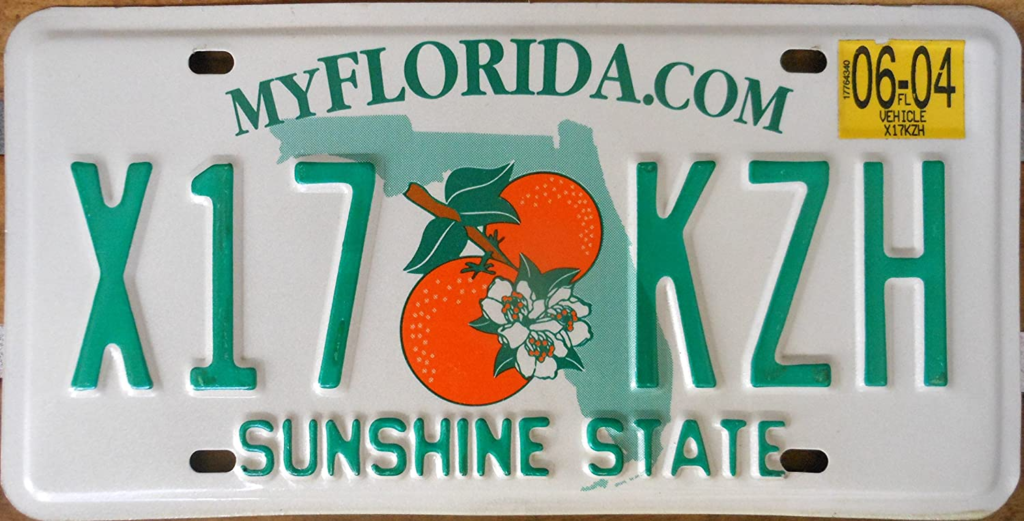Can I Lookup a Florida License Plate Number?
Introduction
When it comes to Florida license plate numbers, you might find yourself in situations where you need to look up information related to a specific plate. Whether it’s due to security concerns, an accident, or just curiosity, the ability to access this information can be quite useful. In this comprehensive guide, we will explore the possibilities and limitations of looking up a Florida license plate number.
Understanding License Plates in Florida

Types of Florida License Plates
Florida offers various types of license plates, including standard plates, specialty plates, and personalized plates. These plates may provide different information and have distinct designs.
Accessing Public Records
Public Records Laws
Florida, like many states, has strict laws governing access to personal information tied to license plates. This is to protect the privacy of individuals and prevent misuse of this information.
The Driver’s Privacy Protection Act (DPPA)
The Driver’s Privacy Protection Act (DPPA) is a federal law that further regulates the access and use of personal information obtained from state motor vehicle records. It sets guidelines for the use and disclosure of this information, including license plate data.
Important Note: Before proceeding with a license plate lookup, it’s crucial to understand and adhere to the terms of the DPPA. You may only conduct a motor vehicle records search for a purpose permitted under the DPPA, as amended. By proceeding, you represent that you have read and understand the terms of the DPPA, and that you are conducting your search for a purpose authorized by the DPPA. Misuse of this information for purposes other than those permitted by the DPPA may subject you to liability under the law.
Pursuant to the DPPA, you may only access vehicle registration information for any of the following permitted uses:
- Litigation/Pre-litigation: For use in connection with any civil, criminal, administrative, or arbitral proceeding in any federal, state, or local court or agency or before any self-regulatory body, including the service of process, investigation in anticipation of litigation, and the execution or enforcement of judgments and orders, or pursuant to an order of a federal, state, or local court.
- Debt Recovery/Fraud Investigation: For use in the normal course of business by a legitimate business or its agents, employees, or contractors, but only—
- (a) to verify the accuracy of personal information submitted by the individual to the business or its agents, employees, or contractors; and
- (b) if such information as so submitted is not correct or is no longer correct, to obtain the correct information, but only for the purposes of preventing fraud by, pursuing legal remedies against, or recovering on a debt or security interest against, the individual.
- Government Agency: Use by a government agency, but only in carrying out its functions.
- On Government Behalf: Use by any person acting on behalf of a government or law enforcement agency, but only in carrying out the agency’s functions.
- Insurer/Claims Investigation: Use by an insurer or insurance support organization, or by a self-insured entity, or its agents, employees, or contractors in connection with claim investigation activities, anti-fraud activities, rating or underwriting.
- Motor Vehicle Safety: In connection with motor vehicle safety or theft, or driver safety (except by or for a motor vehicle manufacturer).
- Employment: Use by an employer or its agents or insurer to obtain or verify information relating to a holder of a commercial driver’s license that is required under Chapter 313 of Title 49 of the United States Code.
- Towing/Impounded Vehicle: For use in providing notice to the owners of towed or impounded vehicles.
- Private Investigator: Use by a licensed private investigative agency or licensed security service for a purpose permitted in one of the items listed above.
- Consumer Authority: Written consent of individual. (Copy of signed consent must be faxed to Lance Casey & Associates prior to the request being filled.)
You will be required to select a DPPA Permissible Purpose when placing your order. By inputting your response, you are certifying to Lance Casey & Associates that you are in, and assume full responsibility for, compliance with the DPPA and you agree to indemnify, defend and hold Lance Casey & Associates harmless from any breach of the DPPA by you, your agents or contractors and any damages, fees, and costs associated therewith. Information from this file may not be used to determine a consumer’s eligibility for credit, insurance or employment, pursuant to the Fair Credit Reporting Act, (15 U.S.C. Sec 1681).
If you are in compliance with the DPPA, then you can order a license plate lookup from Lance Casey & Associates. As licensed private investigators, we have access to current vehicle registration information on file at your state’s DMV, so you can be confident that the results are up-to-date and accurate.
Law Enforcement Access
Police Investigations
Police officers can run license plate numbers to gather information during criminal investigations, traffic stops, or other law enforcement activities.
Limited Access for the General Public
Vehicle History Reports
One option is to obtain a vehicle history report. These reports provide information about a vehicle’s history, including accidents and ownership details, but they do not typically include personal information about the owner.
Private Investigator Access
Private investigators often have access to databases that can provide registered owner names and addresses associated with a license plate number. However, this access is typically restricted to licensed professionals and is subject to legal, ethical, and federal guidelines, including the DPPA.
Privacy Concerns
Stalking and Harassment
Misuse of license plate information for stalking or harassment purposes is illegal and can lead to severe legal consequences, including violations of the DPPA.
Online Services
Vehicle Identification Number (VIN) Lookup
One common method used by private investigators is to perform a VIN lookup. The VIN is a unique identifier for each vehicle, and it can provide information about the vehicle’s history, including the registered owner’s name and address, in compliance with the DPPA.
Online Databases
Private investigators may also utilize online databases that aggregate data from various sources, including motor vehicle records, to provide comprehensive information about a vehicle and its registered owner. These databases are often used in compliance with federal and state laws, ensuring that privacy rights are upheld.
Legal Considerations for Private Investigators
State Licensing
Private investigators must be licensed in the state of Florida, and they are subject to stringent regulations governing their professional conduct, including the lawful and ethical use of license plate data.
Ethical Guidelines
Professional organizations such as the National Association of Legal Investigators (NALI) and the Florida Association of Licensed Investigators (FALI) have established ethical guidelines that private investigators must follow when handling license plate information.
Responsible Use of License Plate Information
It’s crucial to emphasize the responsible use of license plate information, whether you’re a private investigator or an individual seeking assistance.
Valid Reasons
Before attempting to access license plate information, ensure that you have a valid reason for doing so. Legitimate purposes may include conducting investigations, locating a missing person, or recovering a stolen vehicle.
Legal Channels
Always use legal and authorized channels to access license plate information. Private investigators should work within the bounds of the law and ethical standards, respecting individuals’ privacy rights and complying with federal laws such as the DPPA.
Conclusion
In conclusion, looking up a Florida license plate number can be a complex process governed by strict privacy laws and regulations. While licensed professionals like private investigators may have access to databases that provide registered owner names and addresses associated with a license plate number, this access comes with significant responsibilities and legal obligations. Always remember to use this information responsibly, within the boundaries of the law, and in adherence to ethical guidelines.
FAQs
Here are some frequently asked questions about looking up Florida license plate numbers:
-
Is it legal for private investigators to access license plate information?
Private investigators may have legal access to license plate lookup Florida, but this access is subject to licensing requirements, ethical guidelines, and federal laws such as the DPPA.
-
What information can private investigators obtain through license plate lookup?
Private investigators can often access registered owner names and addresses associated with a license plate number, among other vehicle-related details, while complying with the DPPA.
-
Can individuals hire private investigators to look up license plate information for them?
In some cases, individuals may hire private investigators to obtain license plate information, but it is essential to ensure that this is done within the bounds of the law, ethical standards, and federal regulations such as the DPPA.
-
What should I do if I believe my license plate information has been accessed without authorization?
If you suspect unauthorized access to your license plate information, you should contact the relevant authorities and report the issue, as this may involve violations of the DPPA and other privacy laws.
-
Are there any restrictions on the use of license plate information obtained by private investigators?
Yes, there are strict restrictions and ethical guidelines that private investigators must adhere to when using license plate information for their investigations, including compliance with the DPPA.
